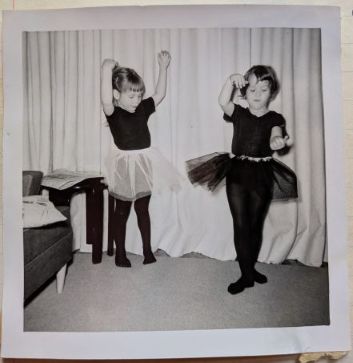But not until I finish this draft…

Mornings, I write. Once up and caffeinated, the first thing I write on is an index card. It’s my priming-the-pump ritual, an aspirational list of intentions, obligations, and recreations for the coming day. The top line, the ribbon, is for daily tasks — regular commitments. There, the invariable first bullet point is: Write.
But these days, I hesitate, the pen hovering over that initial item. I’m revising a novel. Should I put down Write or Rewrite? Wouldn’t Revise be most accurate? But then there’s the new stuff — that counts as writing, too.
Silly. Chalk it up to my revision mindset. The process triggers thinking about the work on the table, thinking on every level: theme, plot, structure, character, the granularity of each word.
No, let me revise: The process triggers overthinking. A friend told me Ray Bradbury warned writers, “Don’t think.” Thinking, he said, interferes with creativity.
Muriel Spark, in an old BBC interview, explains how she writes a novel. She uses a composition book, the brand she’s preferred since childhood. “I begin at the beginning,” she says briskly, jotting down the title and her name. Next? She turns the page and writes, “Chapter One.” After that? She just writes, making “alterations” as she goes. Once finished with the entire novel, she sends it, as is, to the typist. She acknowledges making further alterations after receiving the typed manuscript back but doesn’t elaborate. Is the magician leaving a secret ingredient out of her recipe?
For me, there’s revision and there’s more revision. Working on a story, an essay, I may move puzzle pieces around for days, weeks, or months. When it feels right, right enough, or the clock runs out, I declare it finished. Sometimes, finished means abandoned, as poet Paul Valery said.
Revising a novel is not a puzzle. It’s more like remodeling or rebuilding a house. Henry James describes “the house of fiction” in his 1908 preface to The Portrait of a Lady (a novel he revised even after it was published). The house has a million windows, and at each “stands a figure with a pair of eyes.” All are “watching the show.” But all are “nothing without the posted presence of the watcher…the consciousness of the artist.”
The author working on a novel is that posted uber-watcher, the integrating consciousness. Empowered with oversight and control, at risk of losing the way in the story. Revising, we seek the satisfaction of, as William Maxwell says, “Getting it down right.” We fear the danger of getting it wrong, making it worse.
Beginning the daunting process of revising a novel, I turn to other authors for wisdom, encouragement, and advice.
C.M. Mayo wrote in a handout saved from her workshop on revision I attended many years ago, “Take a deep breath and remember: no matter what it looks like, this is your opportunity to improve it.”
Alice Mattison, in The Kite and the String: How to Write with Spontaneity and Control — and Live to Tell the Tale, suggests reading your own work like a stranger. (Recently, I experimented with listening to an alien stranger, an AI voice, read my manuscript aloud.) And Carolyn See, in Making A Literary Life: Advice for Writers and Other Dreamers, suggests approaching a session of revision fortified with sharp red wine and tomato soup.
Yes to the soup. But the wine? Not ‘til after work — I’d likely fall asleep.
In The Writing Habit, David Huddle considers revision “a form of self-forgiveness…the hope you hold out for yourself to make something beautiful.” He also recommends, “On those occasions when your serenity seems about to collapse…step out into your back yard and vigorously spit.”
These and other voices sustain me, including those of writer friends. Several of us have met at least once a month on Zoom since the early days of the pandemic. Writing poetry, fiction, nonfiction, plays, we’re a genre-varied crew and geographically dispersed. We don’t read and critique each other; rather, we pool resources, celebrate, console, commiserate, and laugh together.
This summer, as prescribed by these friends, I took a break from my novel. Before going on hiatus, I sent the most recent version of the manuscript (number three, by my count) to several beta readers. Their comments in hand, I returned to work on it as autumn began. Grateful for the readers’ time, attentive to their thoughtful impressions and observations, I’m also aware that I must remain the integrating consciousness, true to my story.
No, our story: mine and my characters.
Now years into our relationship, I know them well and feel a sense of responsibility to them. The author-to-character bond continues to deepen with revision. Just now, a character has surprised me, revealed something important and determinative. New insight — better understanding — furthers the goal of getting the story right but also requires rewriting and contributes to the difficulty of letting go and calling a work finished. Over and over, the revising author must discriminate. What is necessary? What is deluded perfectionism? What is procrastination?
Revising fiction is an arduous, addictive process, a luxury that real life doesn’t offer. In life, we don’t get do-overs. No matter what time and experience reveal, no matter how well we see in retrospect, we can only live in one direction: forward.
Speaking of moving forward — and of procrastination — it’s time to stop tweaking this column and get back to my novel. I’m getting close (again, really) to writing “The End.” And this time, truly, I’ll be finished.
But first, some tomato soup.
Ellen Prentiss Campbell’s collection of love stories is Known By Heart. Her story collection Contents Under Pressure was nominated for the National Book Award, and her debut novel, The Bowl with Gold Seams, won the Indy Excellence Award for Historical Fiction. Her novel Frieda’s Song was a finalist for the Next Generation Indie Book Award, Historical Fiction. Her column, “Girl Writing,” appears in the Independent bi-monthly. For many years, Campbell practiced psychotherapy. She lives in Washington, DC, and is at work on another novel.

